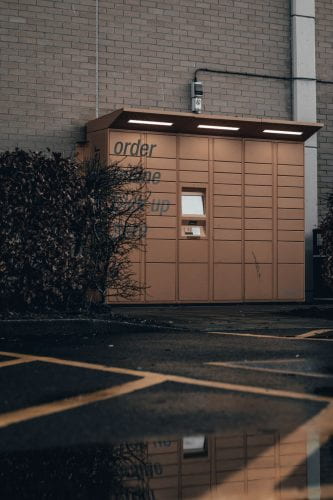
“I rob banks because that’s where the money is.” – Slick Willie Sutton, the bank robber, on why he robbed banks.
It’s not the sexiest form of real estate but you would be hard pressed to find a better business to be in right now. Neil St John (Jed) Raymond, Jr – Director of Asset Management in the UK for Cabot Properties, has no illusions on the industry he is in today. Out of a 60-person division in London, started in 2011, Mr. Raymond has found himself in the perfect position to capitalize on the potential of an evolving real estate landscape.
Cabot Properties
Cabot Properties is a private equity REIT focused exclusively on the industrial and logistics sector. The company is based in Boston and has a track record of success over 30 years. Over the last half decade, Cabot has grown considerably, opening up offices in London and Sydney. When given the chance to lead the UK expansion, Mr. Raymond raised his hand and the rest is history.
With a focus on logistics properties, the London arm of Cabot Properties is pleasantly situated to ride the wave of e-commerce through the COIVD-19 pandemic. Focusing on locations throughout the UK, Germany, and the Netherlands, times have never been better for modern industrial real estate in Europe. The lockdowns across Europe have greatly increased e-commerce growth on the continent. With the increase in demand comes an ever-growing network of warehouses to make it all work.

The Cabot strategy of industrial real estate is not so different than more traditional sectors. They raise capital from institutions, pensions, endowments and high net worth individuals for funds ranging from $500 million to around $1 billion in equity. The fund then acquires buildings wherein they see potential value-add opportunity. When the portfolio has reached 95% occupancy or above, they sell or recapitalize the portfolio, taking advantage of the portfolio-effect premium from larger institutions looking to enter or expand quickly in the logistics sector.
Now on their 6th Value-Add fund, Cabot has expanded their strategy to several core funds. This new arm of the business offers some stability to weather market cycles, expand investor relationships, and create a larger overall platform for growth.
The UK Marketplace
The real estate system in The United Kingdom is different than what we are accustomed to in the United States. Leases are flat leases with upwards-only rent review. Clauses to bring rents up to market are only at the end of terms. In addition, it is hard to build in the UK. Difficulty navigating rules for preserved open space, and planning’s desire for pursuing higher and better use, create a bottleneck in industrial supply. Currently, net absorption is outpacing completions. It would take 2 to 3 years of supply to stabilize rents unless new speculative development arises.
Accessing 2020
2020 has been a remarkable year. Industrial asset values are up 4% in 3 months (over 3 years of expectations). Share prices are up 10% to date. With 30 assets, and the term of the latest fund coming to a close, Mr. Raymond sees several big questions on the horizon: an evolving United States and United Kingdom relationship, Brexit, the rapid growth of e-commerce and new consumable products, and a looming second nationwide lock-down. As they consider the effects of each of these events, Mr. Raymond considers whether it is time to sell or recapitalize and roll assets into a new fund.
The Brexit deadline of January, 2021 looms on the horizon. With unwavering conservative commitment to uphold this date, the new year marks a new freedom to implement new international trade deals and a new logistics environment.
E-commerce demand has taken off. The pandemic has forced new generations to use online shopping in the lock-downs. “Retail will always have its place but it’s hard to imagine things getting back to the way they were”, Mr. Raymond reflects. “Groceries are the final frontier.” But even brick-and-mortar, retail’s bastion of stability, has begun to change.
 The logistics landscape is a fast-evolving industry. Amazon continues to grow with 30% of total take up figures. With it comes uncertainty, given their quickly changing needs and internal capacities. Delivery logistics are evolving as Amazon’s data collection drives efficiency. Vehicles and transportation methods are changing. Some speculate soon they will not be able to rely on municipalities to handle the sheer volume of boxes. Considerations like high power requirements, for sorting robotics and electric vehicles, and changing preferences from regional distribution, to more neighborhood last-mile warehousing, create uncertainty for renewals. Adding to demand are 3rd party logistics companies entering the market and backed up inventory from conventional stock stores with overflowing storage space. All of this has chewed up Class B stock and added negotiating leverage to those who hold Class A space.
The logistics landscape is a fast-evolving industry. Amazon continues to grow with 30% of total take up figures. With it comes uncertainty, given their quickly changing needs and internal capacities. Delivery logistics are evolving as Amazon’s data collection drives efficiency. Vehicles and transportation methods are changing. Some speculate soon they will not be able to rely on municipalities to handle the sheer volume of boxes. Considerations like high power requirements, for sorting robotics and electric vehicles, and changing preferences from regional distribution, to more neighborhood last-mile warehousing, create uncertainty for renewals. Adding to demand are 3rd party logistics companies entering the market and backed up inventory from conventional stock stores with overflowing storage space. All of this has chewed up Class B stock and added negotiating leverage to those who hold Class A space.
Despite all uncertainties, the UK logistics market continues to improve with 4-year rent growth up 13.6% to 24.7%. With a second lock-down looming, as COVID-19 cases continue to rise, questions pull in many directions. The key to industrial real estate, just as any other sector, is to know when to exit. However, industrial has one big perk in that it is easy not falling in love with your assets. “You need to be able to let it go when its time”, Mr. Raymond remarked. What the future of industrial real estate in Europe looks like in 2030 is anyone’s guess, but it will not be what it is today.
